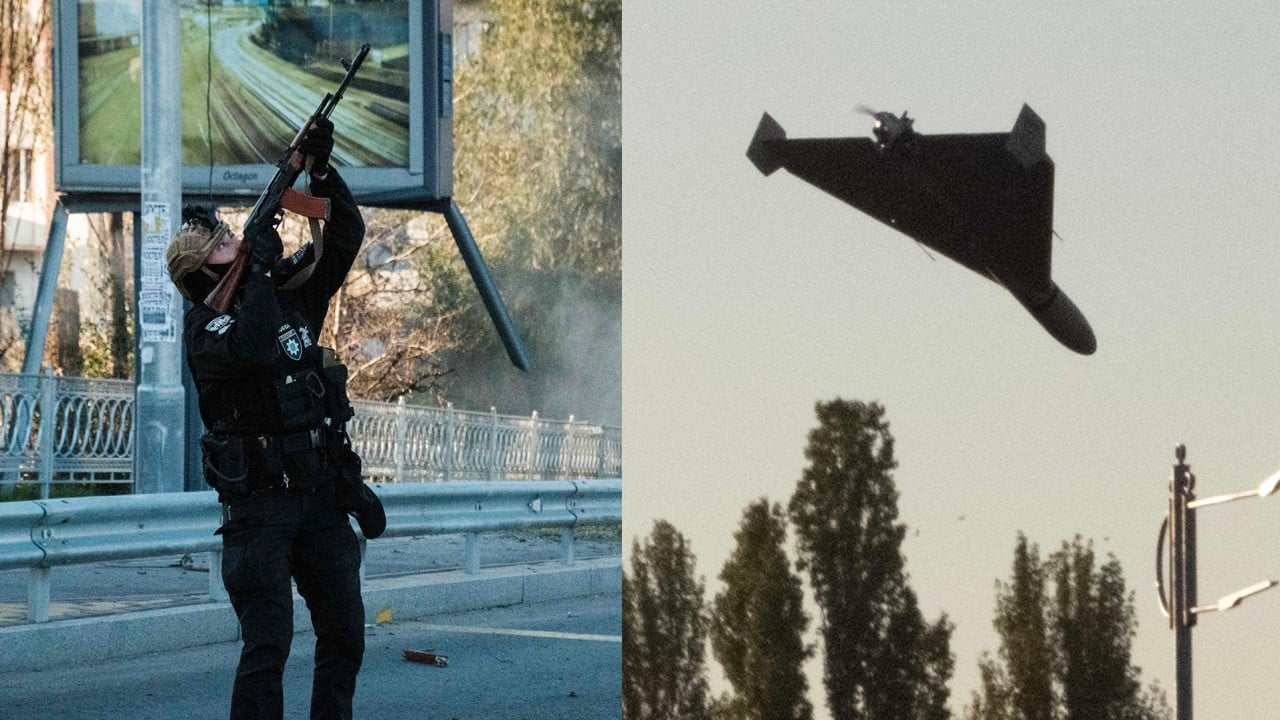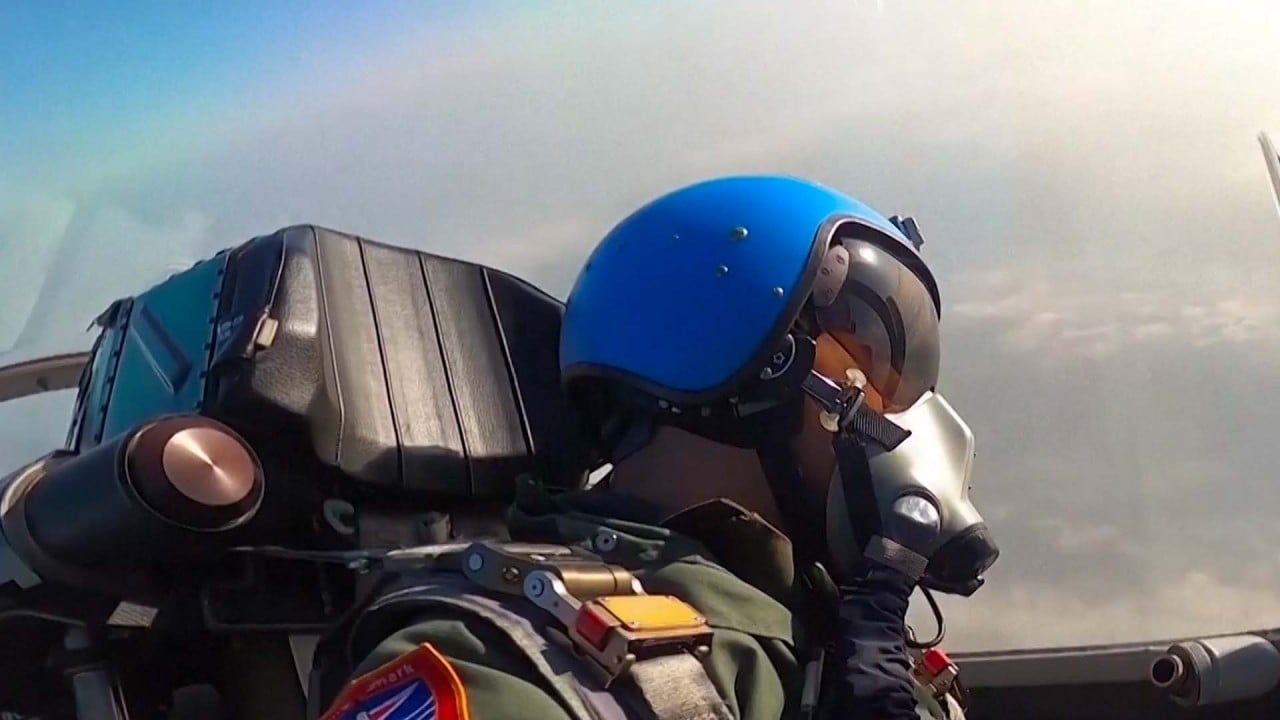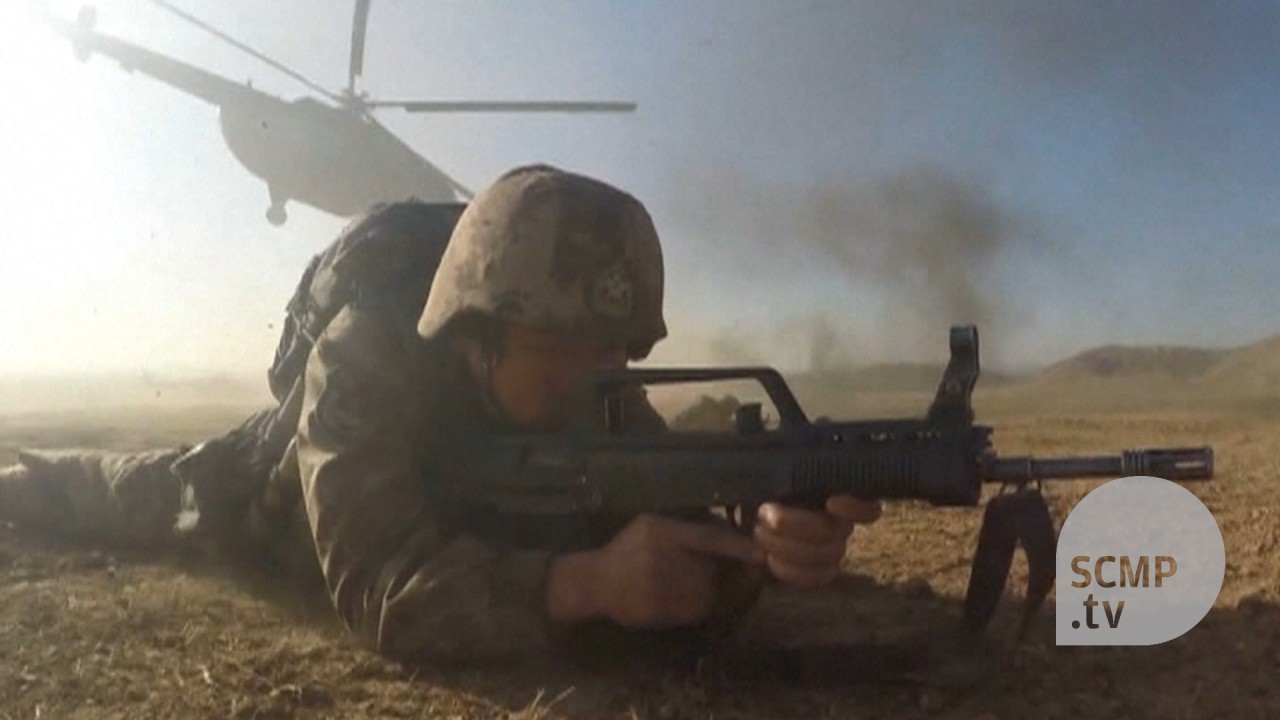
Chinese military focuses on stronger NCO ‘backbone’ with longer service, more skills
- Small, highly skilled units are the ‘sharp knives’ of the future battlefield, PLA Daily says, citing lessons drawn from ‘regional wars’
- Personnel reform is a major part of the PLA’s goal to become a ‘world-class’ military by 2050, as envisioned by President Xi Jinping
Another article in the Chinese military newspaper said the role of NCOs in modern warfare had become more important in light of lessons drawn from recent “regional wars”.
“Modern warfare is a battle of elite soldiers, and basic combat units that are more streamlined, modularised, and multifunctional,” the PLA Daily said.
“In many cases, the protagonists on the battlefield are no longer organised troops, but modular squads. The status and role of squads have been significantly improved, and the NCO has increasingly become the protagonist of the battlefield.”
It said small military units had played an increasingly important role in regional wars, and high-quality NCOs with multiple skills, including strategy, commanding and special combat, had become the “sharp knives” of the future battlefield.
The officers earlier struggled to secure promotions, despite many being willing to continue in service. According to the PLA Daily, which cited the example of one garrison stationed on the Spratlys, only about 6 per cent of intermediate NCOs were eligible for promotion to senior NCO.
The number of those applying for extension of service had increased by nearly 20 per cent compared with the same period last year, the report said.
In 2018, Chinese President Xi Jinping, also chairman of the Central Military Commission, called NCOs “the backbone” of the army, saying “the stability of this team is very important”.
However, the NCO force has struggled with turnover and a lack of professional skills, according to an article published in the PLA Daily in April.
The regulations that took effect in March are aimed at increasing “combat effectiveness” through a series of rules for promotion, recruitment and training of Chinese soldiers, which includes conscripts and NCOs.
‘Use of military power needs to be normalised’, Xi Jinping tells congress
Personnel reform is a major part of the PLA’s goal to become a “world-class” military by 2050, as envisioned by Xi.
In July, the PLA Daily reported that six NCOs of a 75th Group Army brigade qualified to serve as “position commanders” – a role that, while not a formal promotion, allows them to command missile launches during live-fire exercises.
They will also be sent to universities, military research institutes and equipment manufacturers for further training to improve their professional skills, according to the report.
Another PLA Daily report said every senior NCO of a brigade of the 75th Group Army would be assigned research tasks, so they could play a leading role and “take the initiative to think about war, study war, and plan war among soldiers”.
China adopted the NCO system in 1978, under a law stipulating that some conscripts whose service was overdue could be made into volunteers and allowed to remain for long-term service. In 1988, these volunteer soldiers were officially named as NCOs.
The system underwent major reforms in 1999 and 2009, with a focus on building a professional corps with the ability to operate increasingly sophisticated weapons systems, through training and recruiting those with strong educational backgrounds.
What is China’s Joint Operation Command Centre and who’s in charge?
In 2009, a senior military officer told state news agency Xinhua the number of NCOs in the PLA and People’s Armed Police Force would rise to almost 900,000 by the end of that year, but their current strength is unknown.
But NCOs have not received the same attention as commissioned officers, according to Chinese defence experts.
“To meet the needs of modern warfare, NCOs should assist officers in troop management and daily training tasks. However, the current group has not fully played the role,” Hu Zhenggao, a lecturer at the PLA Navy’s NCO school, wrote last year.
“We must attach great importance to NCOs, and we should not be afraid to delegate power to them to participate in management and decision making of the units just because of their status as soldiers,” Hu said in the article, published in a military magazine affiliated with the State Administration for Science, Technology and Industry for National Defence.
We must fully respect the “dominant position” of NCOs, have the courage to appoint them to some “command and management” positions, let them take part in large-scale drills and competitions, and improve their overall quality to forge a team capable of fighting and winning, the article read.
The need to develop ranks of skilled NCOs came from a need for them to use more complex technological equipment, Fu Qianshao, a retired equipment specialist from the PLA Air Force in Beijing said.
Zhou Chenming, a researcher at the Beijing-based Yuan Wang military and science technology think tank, also called NCO forces a stable backbone for the military.
“The reform aims to make them more willing to stay, as the NCOs are the backbone [of the army] and serve in a unit for quite a long time and are not usually transferred,” Zhou said.
“The company commanders might be new faces, but the [tenures of] NCOs under a company are relatively stable. So combat effectiveness is not affected when the commanders leave.”




